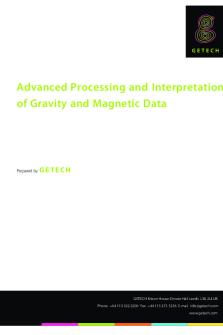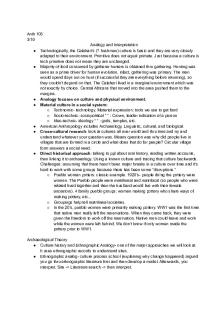Laws213 week 20 - BORA and Interpretation PDF

| Title | Laws213 week 20 - BORA and Interpretation |
|---|---|
| Author | Vivian Mitchell |
| Course | Public Law |
| Institution | Victoria University of Wellington |
| Pages | 4 |
| File Size | 120.1 KB |
| File Type | |
| Total Downloads | 54 |
| Total Views | 119 |
Summary
BORA and Interpretation...
Description
Section Domestic focus rather than international Material book = bare minimum o 2003 Rishworth, Huscroft The New Zealand Bill of Rights (issue based) o Butler & Butler, The New Zealand BORA 1990: A commentary (sections explained deep) o Ministry of Justice, The Handbook of the NZ BORA Act 1990 Course aim Why do we have HR? Understand operative provisions i.e. Sections 4, 5 and 6 Some ideas about the scope and limitations of rights Formulate contextual arguments o No right or wrong answer, just getting the best one. Think for yourself
There are bigger things behind someone wanting to die Consent is not a defence
Right to life State is interested in safeguarding everyone's rights, so it can't be seen condoning someone in giving up their right to life. o If we allow this, can we then necessarily and seriously say we are protecting rights. o Can we, when we are given rights, can we decide we don't want them anymore?
All rights have the same value.
Balance values, and balance rights off others o Right not to live against interest of the state to provide safe human rights o Freedom of speech is a temporary breach, doesn't have the impact o What is the states involvement, what does it mean if the state decides that you are no longer a person (i.e. Can turn off life support when brain dead) o Sometimes two rights conflict, the state creates a balance i.e. Noise control.
______________________________________ There is philosophical justification for HR o Because they are a good thing to have. - Deontological o Advances society as a whole, or for an individual or group. - Teleological o Need HR to further own individual aspirations and fullest expression of our own moral autonomy. - liberal rights theory o Social rights approach: we only have them because they're useful. We give ourselves rights to be able to live with each other.
o Natural rights theory: we need order, or we are at each others throats. o Positivists: because we have them written down. o Religious: God given. Find a theory which works for you!!! - I like social rights approach Asia and Pacific has no regional human rights agreement or court The idea expressed that the international human rights instruments are western constructs and don't conform with our values. Is heavily used by governments as to why they do not adhere to these human rights. o Arguments against this: historically they were definitely voiced o If you believe we have human rights because we are human, then it doesn't matter. Humans are in their core values that we all want food, eat, sleep , work, live etc. How do we know HR exist? We can use them in the courts Binding in international law BORA 1990, statutes - communal recognition Can there be rights that transcend national borders? Core of human rights are the same in every society Give nations the ability to make a decision around rights, but not core rights o The flexibility is around the limits of the rights, this will change culture to culture o There is no way core rights can be justifiably breached Accusation that positive law is a western construct How do we interpret the NZ Purpose Approach BORA as a scheme Common law and statute ICCPR Comparative law White paper Purposive Approach (s 51 Interpretation Act 1991) Focuses the attention on the nature of the particular right infringed and the object which the particular provision is trying to serve o Read words in light of the overall purpose Generous interpretation (Ministry of Transport v Noort [1992])
Generous Approach Ministry of Transport v Noort [1992] Facts: There was a provision missing: indirectly made the right for a lawyer when getting breathalysed = deemed within the boundaries of the court.
Interpretative BORA: problem with this type of BORA is whether the courts can be more activist or does it just read BORA and apply it. o BORA 1990: the way it is interpretative you use s 4-6. o It says it must be interpreted in a generous way BORA as a Scheme Gives it an interpretation that ensure the provision satisfactorily contributes to the scheme of the statute (CM 8) There is no 'right to protest' = but think as a scheme: freedom of expression, assembly, movement Section 5 BORA: justified limitations o Parliament can actually limit all our rights o We have a general limitation clause which generally allows state to limit rights o It is up to Parliament if they infringe that right, that that infringement was justified Existing Statutory and Common Law It backs rights up BORA is evolutionary not revolutionary: it draws rights together, doesn't create them. Courts have regard to existing statutes and common law. ICCPR BORA was our affirmation of the ICCPR. There is direct reference in BORA to the ICCPR Bagen: the house owners wanted damages for a breach of rights by the police. o Problem: there is no remedies section in BORA o Article 2(3) ICCPR was used - 'people must have ability to implement remedies' = remedies is a RIGHT. o Purpose: parliament would not have implemented BORA without giving remedies, does not make sense. Comparative and International Law If we all have HR because we are human: then every single judgement from every constitution can be precedent. UK Human Rights Act 1998 / Supreme Court Canadian Charter / Supreme Court European Court of Human Rights ICCPR: Human Rights committee Indian Constitution/ Supreme Court 1. Was there a rights violation 2. Was this violation justified = lots of precedent NOT: US Supreme Court o State doesn't have same s 5 idea of limit rights + justify them o Example: soft porn = freedom of expression // hard porn = NOT freedom o In our jurisdiction: we say is the porn a justified limit?
o
Under this US model = difficult to change rights
White Paper Helps interpret BORA because it provides analysis of the individual provisions proposed to be included in it. It shows what provisions proposed did NOT make it which helps interpret the purpose.
Section 3 The Bill of Rights applies only to acts done: Broad/general/purpose approach = omissions. Section 3(a): if you can find a case against the state in some form Section 3(b): Section 3: Legislature examples of right's restrictions Content of the legislation Speaker's Ruling (Police v Beggs) Select Committee proceedings and reports Section 3: Executive examples of right's restrictions Content of governmental manuals Police and military action Orders made in the court and tribunals Section 3: Judiciary Sentencing Manner in which the courts conduct proceedings...
Similar Free PDFs

Under Influence Week 20
- 7 Pages

Week 20 - Competition Law
- 2 Pages

Bora Aksu Group Branding Project
- 92 Pages

Bode Plots and Interpretation
- 2 Pages

Public Law BORA Lectures 2019
- 15 Pages

Humms 2126 week 11-20
- 11 Pages

Humms-2123 week 1-20
- 71 Pages

Physical Science week 1-20
- 114 Pages
Popular Institutions
- Tinajero National High School - Annex
- Politeknik Caltex Riau
- Yokohama City University
- SGT University
- University of Al-Qadisiyah
- Divine Word College of Vigan
- Techniek College Rotterdam
- Universidade de Santiago
- Universiti Teknologi MARA Cawangan Johor Kampus Pasir Gudang
- Poltekkes Kemenkes Yogyakarta
- Baguio City National High School
- Colegio san marcos
- preparatoria uno
- Centro de Bachillerato Tecnológico Industrial y de Servicios No. 107
- Dalian Maritime University
- Quang Trung Secondary School
- Colegio Tecnológico en Informática
- Corporación Regional de Educación Superior
- Grupo CEDVA
- Dar Al Uloom University
- Centro de Estudios Preuniversitarios de la Universidad Nacional de Ingeniería
- 上智大学
- Aakash International School, Nuna Majara
- San Felipe Neri Catholic School
- Kang Chiao International School - New Taipei City
- Misamis Occidental National High School
- Institución Educativa Escuela Normal Juan Ladrilleros
- Kolehiyo ng Pantukan
- Batanes State College
- Instituto Continental
- Sekolah Menengah Kejuruan Kesehatan Kaltara (Tarakan)
- Colegio de La Inmaculada Concepcion - Cebu







